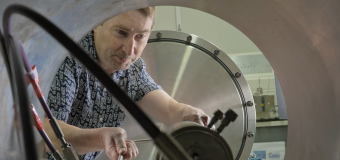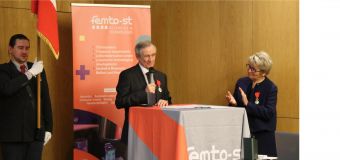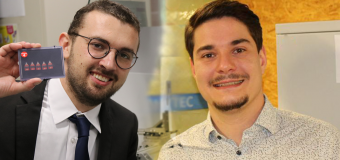You are here
Optical Neural Networks start to learn...
Work is actively in progress at FEMTO-ST in order to design the photonic architectures dedicated to our future processors that will be computing through artificial intelligence concepts. This is currently done in the framework of the NeuroQNet Project which led recently to an important result in photonic brain-inspired computing: an experimental training methodology based on reinforcement learning was successfully demonstrated.The setup has involved an optical Read-Out of a photonic neural network, in the form of a matrix of micro-mirrors. It succeeded in training iteratively, and efficiently, the Read-Out for the prediction of a chaotic behavior, which was computed from a photonic network processor of 900 «light-neurons». Extrapolating this approach to more practical and highly complex problems, this could lead to ultra-fast and highly efficient weather forecast, without any numerical simulation of complicated equations modeling the atmosphere. This would simply need to learn the weather motions from the observation of past weather dynamics.
Similar groundbreaking brain-inspired processing concepts are also explored at FEMTO-ST in the framework of a very practical and concrete application: the diagnostic and prognostic of fuel-cell systems, in order to increase the lifetime of this clean electrical energy generator for the future (BiPhoProc project from the ANR call OH-RISQUE; a project jointly explored by the Energy Dept. at FEMTO-ST, as well as by the Mathematics laboratory of Besançon)
Research in this field at FEMTO-ST stands at the international forefront, as illustrated by a prestige conference to be held in Hanover, Germany, on 18-20 December 2018. The conference inviting some the best researchers worldwide (Standford, Berkeley, EPFL,...) on basic concepts for cognitive computing « Cognitive Computing: Merging Concepts with Hardware ») is co-organized by FEMTO-ST (Dr Daniel Brunner)
The publication on learning with photonic networks, published in Optica, was moreover chosen for the issue cover by the editorial board, because of its high potential impact
Contact : Daniel Brunner, OPTO Group, Optics Dept



















